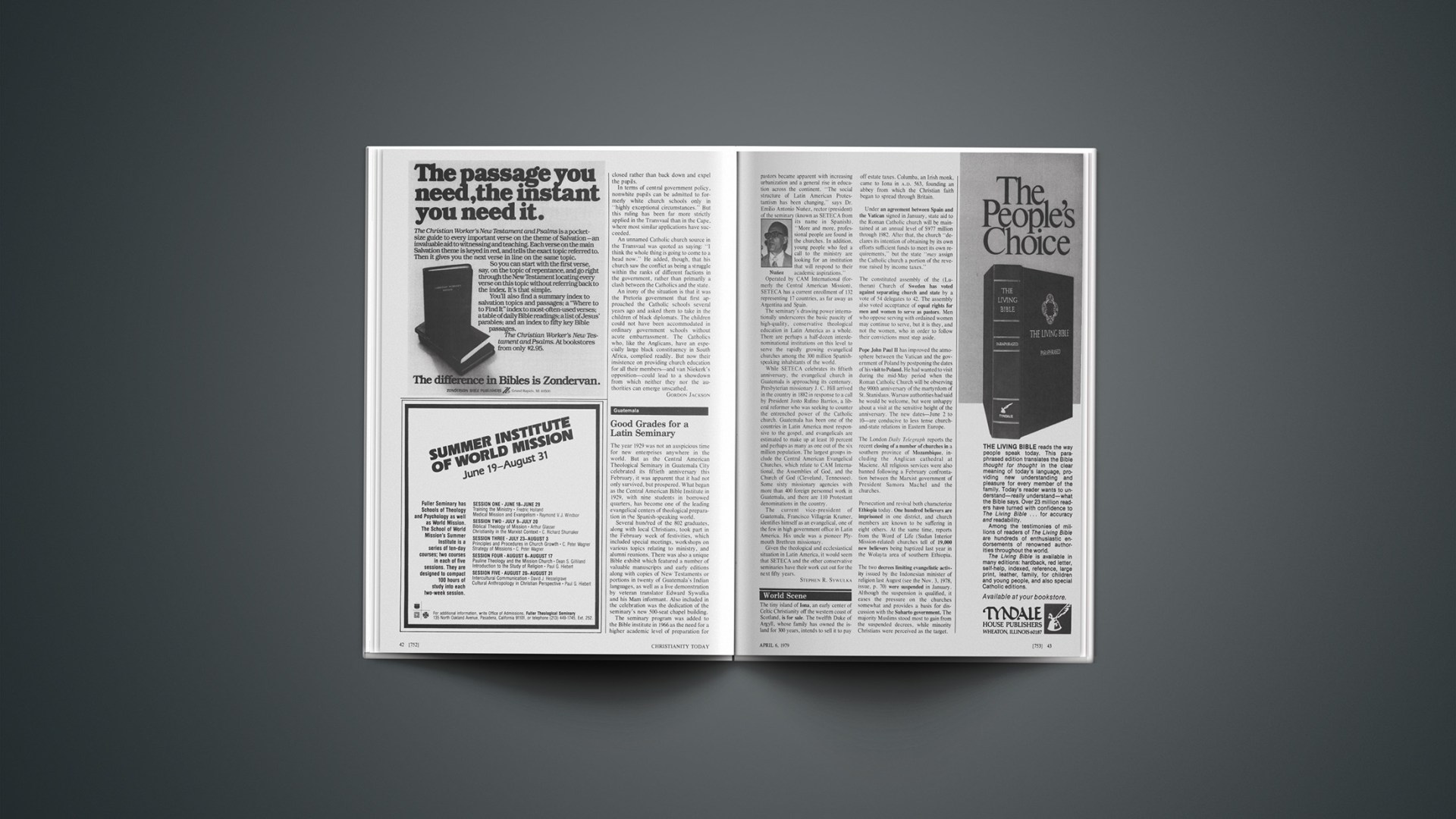The tiny island of Iona, an early center of Celtic Christianity off the western coast of Scotland, is for sale. The twelfth Duke of Argyll, whose family has owned the island for 300 years, intends to sell it to pay off estate taxes. Columba, an Irish monk, came to Iona in A.D. 563, founding an abbey from which the Christian faith began to spread through Britain.
Under an agreement between Spain and the Vatican signed in January, state aid to the Roman Catholic church will be maintained at an annual level of $977 million through 1982. After that, the church “declares its intention of obtaining by its own efforts sufficient funds to meet its own requirements,” but the state “may assign the Catholic church a portion of the revenue raised by income taxes.”
The constituted assembly of the (Lutheran) Church of Sweden has voted against separating church and state by a vote of 54 delegates to 42. The assembly also voted acceptance of equal rights for men and women to serve as pastors. Men who oppose serving with ordained women may continue to serve, but it is they, and not the women, who in order to follow their convictions must step aside.
Pope John Paul II has improved the atmosphere between the Vatican and the government of Poland by postponing the dates of his visit to Poland. He had wanted to visit during the mid-May period when the Roman Catholic Church will be observing the 900th anniversary of the martyrdom of St. Stanislaus. Warsaw authorities had said he would be welcome, but were unhappy about a visit at the sensitive height of the anniversary. The new dates—June 2 to 10—are conducive to less tense church-and-state relations in Eastern Europe.
The London Daily Telegraph reports the recent closing of a number of churches in a southern province of Mozambique, including the Anglican cathedral at Maciene. All religious services were also banned following a February confrontation between the Marxist government of President Samora Machel and the churches.
Persecution and revival both characterize Ethiopia today. One hundred believers are imprisoned in one district, and church members are known to be suffering in eight others. At the same time, reports from the Word of Life (Sudan Interior Mission-related) churches tell of 19,000 new believers being baptized last year in the Wolayta area of southern Ethiopia.
The two decrees limiting evangelistic activity issued by the Indonesian minister of religion last August (see the Nov. 3, 1978, issue, p. 70) were suspended in January. Although the suspension is qualified, it eases the pressure on the churches somewhat and provides a basis for discussion with the Suharto government. The majority Muslims stood most to gain from the suspended decrees, while minority Christians were perceived as the target.










